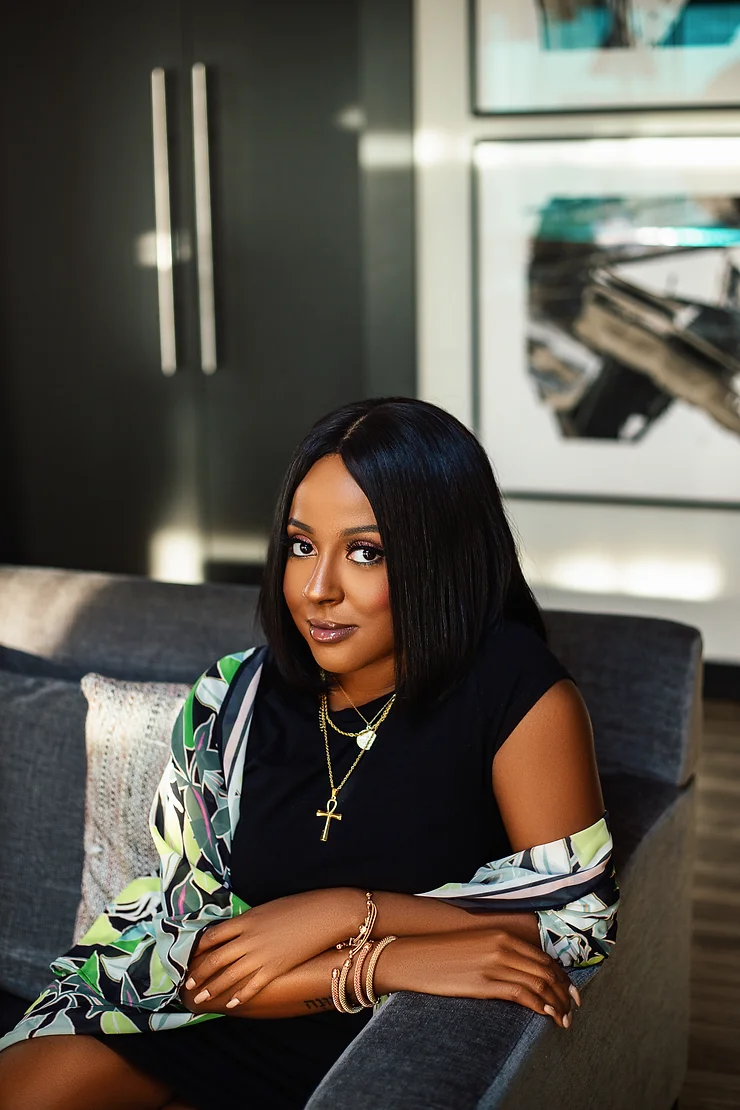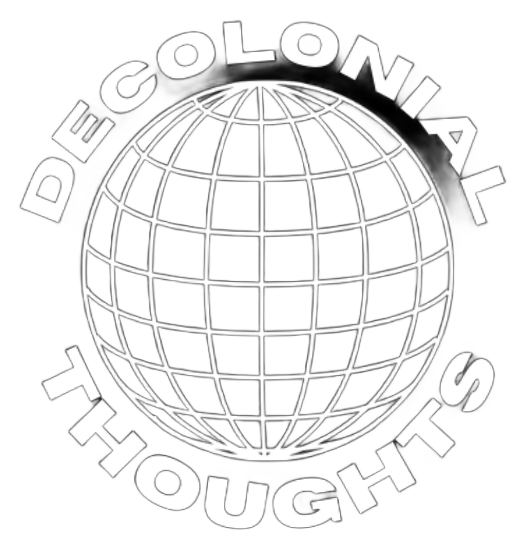
Tayo Bero is an award-winning journalist, a regular columnist for The Guardian, a former radio producer at CBC, and the founder of Sisi Media, a groundbreaking media house.
With a passion for highlighting underrepresented voices and perspectives, Bero has dedicated her career to amplifying marginalised communities and views, shedding light on pressing social issues. Bero’s unwavering commitment to social justice and her ability to captivate audiences make her a powerful force in journalism. In this interview, we discuss her journey in the media world and what it’s like presenting marginalised perspectives on heavily politicised and divisive topics.
Decolonial Thoughts: You’re a culture writer featured in prominent magazines like Teen Vogue and The Guardian, you have Sisi mag, you have your ‘pop culture is killing me’ podcast, you were a radio host… I would have to describe you as a media connoisseur! How would you say you found your voice and place in these different mediums, and do you have a favourite?
Thank you! My career started in radio, so I definitely owe a lot of my growth and skill in audio to the work I did at my first job at Canada’s public broadcaster.
My first love was always writing, so I’d have to say my columns and my new substack newsletter are definitely my favourite things to do right now.
I’ve always been opinionated so finding my “voice” in those mediums was really a matter of developing enough experience, confidence and skill to build that into the work I’m doing.
Decolonial Thoughts: From your opinion piece on the emasculation of black men to Brittney Griner’s story, your culture pieces tackle highly relevant, difficult and often divisive issues, with grace and empathy. What’s it like holding that kind of space as a black woman and as a black woman living in Canada?
I try to write as honestly and candidly as possible, and I think that’s what really strikes a chord with people. A lot of the conversations I’m having are about really difficult topics involving really complex people. But I truly believe there’s an important story behind those complexities and one that needs to be told.
Decolonial Thoughts: As someone who grew up in Nigeria and moved to Canada later in life, how would you say this influenced your cultural interests and perspective on the world?
Like a lot of people who had the same journey, my understanding and experience of my Blackness really shifted when I started living in North America as a teenager. I think I’m always interested in the ways power moves among the communities around me, so it was natural for my work to focus on social issues.
Decolonial Thoughts: In your writing process, are there any writers who you look to, or who have helped shape the way that you express your ideas?
I recently read Ta-Nehisi Coates’ We Were 8 Years in Power and his writing has been really instructive when it comes to seeing the big picture. I’m all about situating current experiences within historical context and making those connections in my writing and he’s just so good at that.
There’s also a directness in Angela Davis’ writing that helps me remember not to second-guess myself even when I’m saying a hard thing.
I really enjoy Jamal Bouie, Arwa Madhawi and Roxanne Gay’s writing as well.
Decolonial Thoughts: The world seems to be becoming increasingly polarised and intolerant. What would you say motivates you to keep writing and producing content that challenges people?
The fact that the world is the way it is. I would describe my work as journalism for social change so my constant motivation is making sure that I produce some kind of net positive outcome; in my case, starting or contributing to the important conversations that are happening in our world.
Decolonial Thoughts: What has been your most challenging (positively or negatively) article to date and why?
That’s tough to say because each assignment comes with its own potential challenges but I try to focus on what I’m trying to say as opposed to how I sound saying it, and then build the piece from there.
Decolonial Thoughts: Is there a primary objective you usually aim to achieve with your work?
Definitely social change.
I’m also very aware of the ways that mainstream media has historically silenced many of the communities that I’m covering, so my goal is to add to the body of works that will someday make up “history” while giving voice to folks who would otherwise have been left out of that story.
Decolonial Thoughts: What is your goal with Sisi media? What do you hope to achieve?
My main goal is really to document the Black experience and give Black women space to call their own that honours their voices in the way they deserve.
Decolonial Thoughts: What do you think it means to be decolonial? And how do you think personally you are contributing to that?
For me, that means dismantling the oppressive Eurocentric structures that dictate our society and replacing them with ones that honor the diverse values of our communities.
All of my work has decolonization at its center because speaking truth to power often means questioning the legitimacy of that power and that’s where a lot of my work lives. Why do we live, think and relate with one another the way we do? And who benefits when we adapt to a certain status quo? Asking these questions is a big part of my work.
For more of Tayo’s work:
- Instagram: https://www.instagram.com/tayobero/?hl=en
- Podcast: https://www.instagram.com/popcultureiskillingme/?hl=en
- Sisimag: https://www.sisimag.com/
